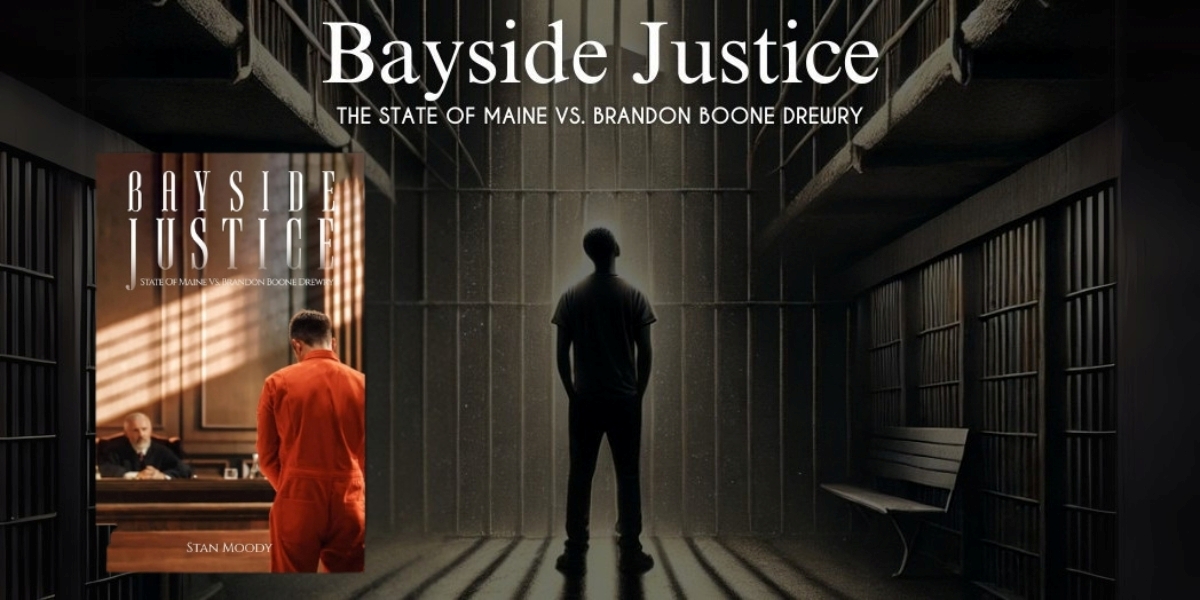Bayside Justice by Stan Moody offers a powerful and deeply human account of the challenges faced by individuals navigating the criminal justice system without resources or support. Centered on the 2004 case of Brandon Boone Drewry, a homeless man convicted of sexual assault in Portland, Maine, Moody’s work serves as both a personal story and a broader reflection on systemic shortcomings.
Drawing on his experience as a prison chaplain, Moody approaches the case with compassion and a critical eye, documenting how individuals who lack financial stability, legal representation, or social networks often encounter significant barriers to fair treatment. Through thorough research and firsthand insight, the book presents Drewry’s trial as an example of how complex circumstances and limited means can impact a person’s ability to defend themselves effectively.
One of the key concerns Moody raises is the handling of evidence. In Drewry’s case, DNA that did not match him was part of the record, yet other factors appeared to outweigh this in the decision to pursue conviction. The book highlights the importance of ensuring that all evidence is evaluated carefully and fairly, particularly when a defendant lacks access to a robust defense.
Moody also recounts procedural concerns surrounding the investigation and trial, pointing to inconsistencies in documentation and decisions that may have influenced the outcome. He emphasizes the importance of transparency and accountability throughout the justice process.
At its core, Bayside Justice is a call to reflect on how justice is administered, particularly for society’s most vulnerable. Rather than assigning blame, the book encourages a deeper look at the structures in place and asks whether they are adequately equipped to serve everyone equally.
Bayside Justice also prompts a crucial discussion about the role of public perception in criminal cases. In Drewry’s instance, his status as a homeless individual played a significant role in shaping how he was viewed by both the public and the legal system. Moody underscores the societal tendency to dehumanize individuals facing homelessness or poverty, which can impact their treatment within the justice system. The stigma surrounding Drewry’s lifestyle likely influenced decisions made by those involved in the case, from law enforcement to jurors, highlighting a pervasive issue that extends beyond this one trial. This aspect of the book encourages readers to consider how biases and stereotypes may skew perceptions of justice, leading to unequal treatment based on factors that should not influence legal proceedings.
Perhaps the most compelling element of the narrative is Moody’s portrayal of Drewry not just as a defendant, but as a person. He presents a nuanced view—acknowledging Drewry’s challenges and behavior during the trial—while continually circling back to the fundamental question of fairness. The book doesn’t aim to prove innocence or guilt, but rather to explore whether the legal process functioned as it should have.
In conclusion, Bayside Justice is a thought-provoking and emotionally resonant read. It sheds light on the experiences of individuals who often go unheard and invites readers to consider how justice systems can better serve all members of society. Moody’s storytelling is grounded, empathetic, and ultimately focused on the pursuit of fairness for those who are too often overlooked.
Book Name: Bayside Justice: The State of Maine vs. Brandon Boone Drewry
Author Name: Stan Moody
Paperback ISBN Number: 978-1917505741
Ebook Version: Click Here
Published by Jeremy S.
















